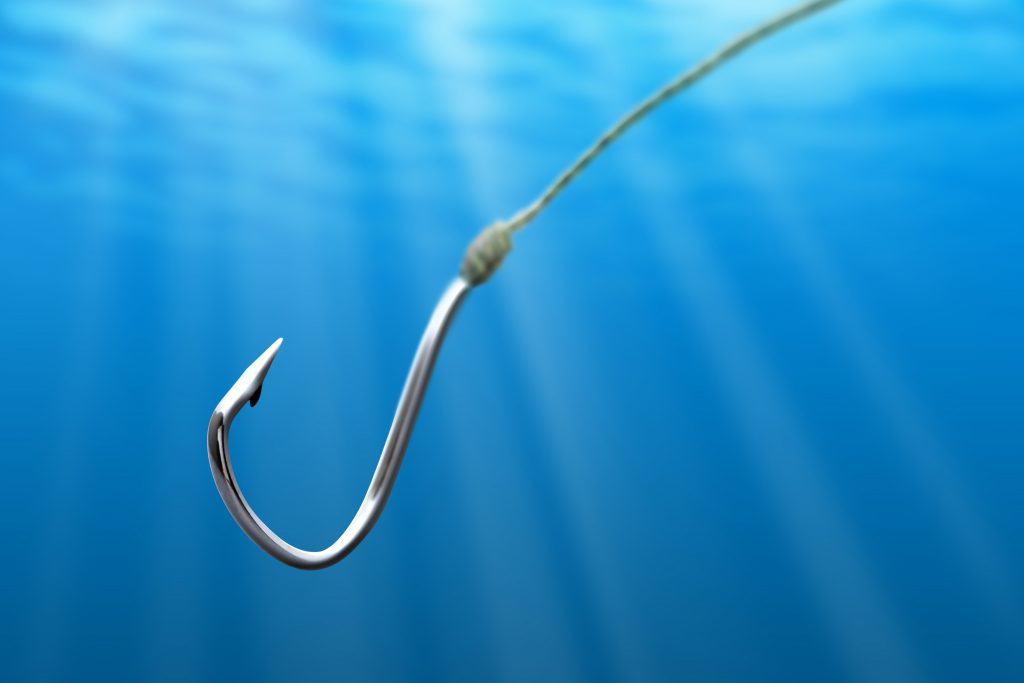
Do the hooks dissolve and how long does it take?
If you've ever lost a fishing hook (and I know I have), you may be wondering what happens to it. I did some research to find out what happens after a hook is lost in the river or at sea.
So, do hooks dissolve? Most hooks that are lost or left in the fish's mouth dissolve naturally. The time varies depending on the material and conditions, but you can expect anywhere from a few months to several years, although there are now manufacturers who make hooks that promote decomposition and also kill cancellation.
Of course, there are many factors that can affect the degree of deterioration of a lost hook. Its size, age, material and environmental conditions can influence how long it will remain in the water.
Decomposition factors
If you lose a hook or leave one in the mouth of a catch-and-release fish, the hook is likely to last a while. Given enough time, natural processes will degrade and rust it, but there are certain factors to consider when thinking about the effects of leftover snags.
First of all, the age of the hook is important. Hooks suffer quite a lot of wear and tear during use. They can be bent, dirty and often submerged in water. This type of treatment can affect the quality and life expectancy of all types of fishing hooks.
If you lose a fishing hook that has been in use for a while, it is likely to break faster than a new one. It will have less of its original coating and natural integrity. However, age is not the only factor that matters when it comes to dissolving metals.
It is also important to consider the material or metal used. Hooks made of wire are often not treated with a protective coating and will break faster than stainless steel hooks. Over time, different materials will wear out, but stainless steel will outlast many others.
Similarly, smaller hooks dissolve faster than larger ones. If there is less mass, nature has less to do to break it down. Therefore, the smaller the hook, the less time it will take to oxidise. Hooks used to catch large. fish, or hooks with a special thickness and multiple barbs can hang much longer.
And finally, it is also important to consider the environmental conditions around the lost hook. Salt water is abrasive and can dissolve metals faster than fresh water. If lost in a river, the flow of water and friction from loose material may also accelerate decomposition. Slow flowing water found in ponds and lakes will slow the decomposition process.
There are other things to consider, such as the growth of plant life or the movement of fish rubbing against rough rocks, which would lead to more rapid weakening or degradation of the metal.
What will happen to the fish?
The next thought that may come to mind may be what happens to fish that are caught with a hook in their mouth after release.
If a fish is pierced deeply or caught in the gills, there is a chance that it will die. If it bleeds after being hooked, it is a sign of increased risk of death. Fish that return to this state are more likely to die from blood loss or infection.
However, death is not the only possible consequence of becoming addicted. Many fish that are caught with hooks in their mouths may scrape or rub them against rocks until they break off. If it stays there longer and the metal starts to rust, the fish will come off more easily. Therefore, there is a good chance that a fish will survive the first catch-and-release process, it will not be stuck with a hook in its mouth for the rest of its life.
If a fish swallows a hook or cannot shake it, it is not always the end of its life! Many fish have strong stomachs and can survive swallowing sharp or inedible things. Of course, it is preferable to remove hooks if you can catch the fish, but they are not necessarily doomed if they get stuck.
It is also important to remember that a fish's nervous system is not exactly the same as ours. When hooked, the sharp barb often gets stuck in the stiff, insensitive material of their mouth or upper lip. They will struggle against the pressure to reel in, but the hook itself doesn't seem to cause much pain on its own.
So, while it is always best to avoid putting it in a fish's mouth, it is not the end of the world if "the one that got away" does so with the hook still in its mouth.
Ways to avoid losing hooks
While there is always a chance that you may lose a hook or lure while fishing, there are some steps you can take to prevent this from happening too often.
First of all, you should use good quality hooks. If they are very old, rusty or bent, they are more likely to break. While high quality hooks may take longer to dissolve if lost, they are more likely to hold for a longer period of time.
Secondly, if your line becomes tangled or snagged during a fishing trip, try to avoid cutting the line and leaving it behind. If conditions are safe, it is better to jump in and try to retrieve the hook and tangled line. This will prevent other people or animals from becoming attached to it in the future.
Picking up damaged or knotted fishing gear is also considerate of others and also helps to keep rivers cleaner.
Finally, it's a good idea to re-tie hooks and lines frequently. If you use the same knot for too long, it is much more likely to loosen and break. It will also help you become an expert line knotter if you practice enough!
SOURCE: https://www.alairelibreblog.com/se-disuelven-los-anzuelos-cuanto-tiempo-se-tarda/
